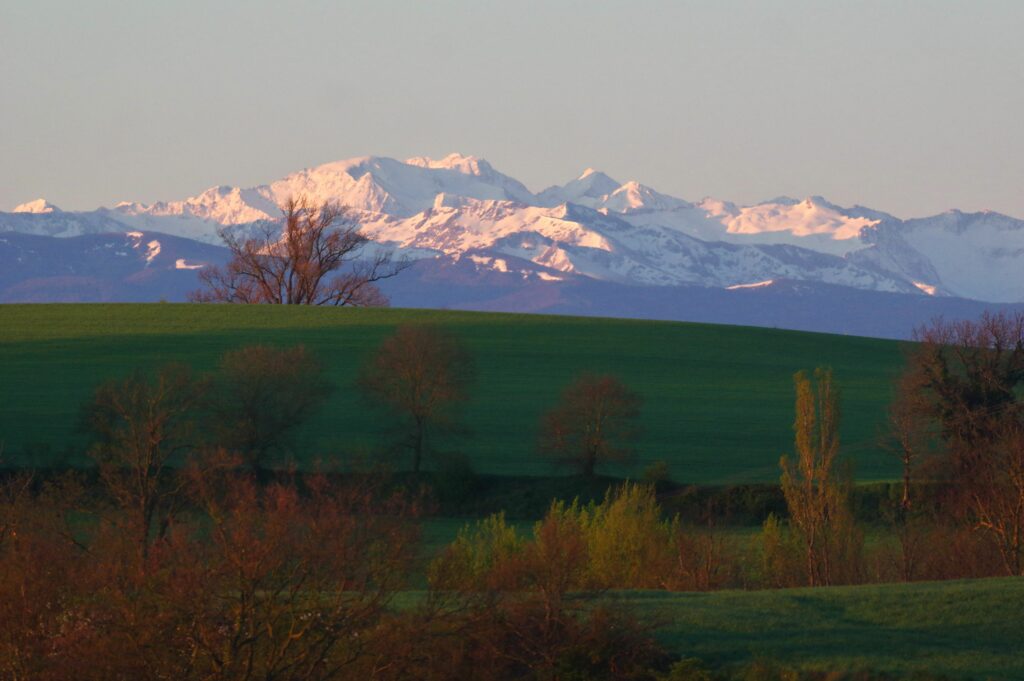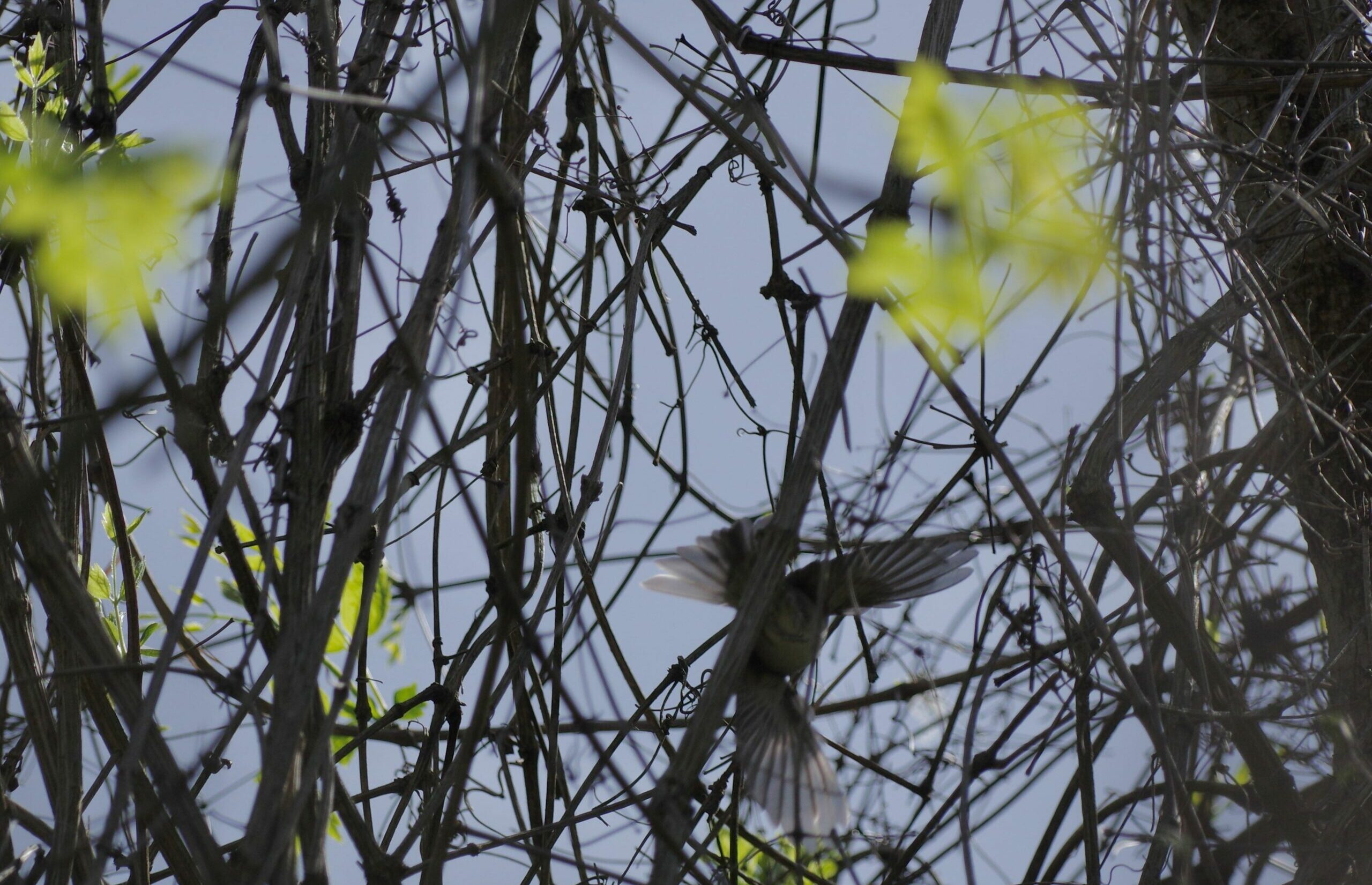As I am getting more committed to, and delving deeper into hands on ecology research, my internal feelings for keeping doing astro have actually never been so ambivalent. Would you like to know what is going on in the mind of a scientist having to face his, and his own research community contradictions to revisit his own vocation ? Then read on.
As my future is now becoming clearer with the recent news that one of my ecology research proposals is being funded, I am currently trying to give it all on the astro side to make progress on, and finish long-initiated projects to free more time for my ecology projects after summer. And, with all these new perspectives, I am finding, to my great surprise, that I am having a great time again doing ingenuous astrophysics with a small group of bright students and young colleagues with whom it is a daily pleasure and honour to work. Besides, I must say it has been a long time since I last managed to focus so efficiently on astro research, and that surprises me too considering where I was just one year ago.
On the other hand, there’s been quite a bit of astro in the news this week, starting with the first cosmological results of the DESI collaboration, which I must say have left me only marginally excited. This in itself is rather weird considering that one of my current astro/cosmology research projects has very much to do with the origins of Baryon Acoustic Oscillations (BAOs), which are one of the main objects of study of DESI. Just two-three years ago, I would have been very excited by such results, which are in fact extremely impressive and interesting. If you are interested in cosmology, I encourage you to read about them, because these new results are going to be very important for the field. But still, I can’t get myself to feel particularly enthusiastic about them.
Why ? Let me try to explain these feelings. The main goal of DESI is to use astrophysical probes like BAOs, which are the gravitational clustering/collapse consequence of sound waves generated in the early universe, to measure the history of its expansion over a wide range of cosmological times. Why is this interesting in principle ? Well, the expansion rate of the universe is directly related to its matter and energy content, the specifics of which we still know little about. Indeed, our best cosmological theories and data currently tell us that the Universe is filled with a mysterious “dark energy”, which makes for 70% of its total content. Then our best guess is that another 25% of the content is invisible, but gravitating matter we call “dark matter”. And only 5% of the content of the Universe is actually in matter forms we know about, which cosmologists call baryons, that is all the stuff that shines (stars, gas, plasma in galaxies and galaxy clusters), plus a tiny wee bit of electromagnetic radiation. We have known these proportions with great precision since the end of the XXth century roughly, and learning all this has been a triumph of modern cosmology. But it is also “a bit of a problem” (euphemism) that we still have no clue what 95% of the “stuff” we think we know is there is made of. Hence, by measuring the detailed expansion history of the Universe at different ages, cosmologists hope to be able to put better constraints on what these things are, and to discover whether those themselves evolve as a function of time. The first results of DESI, just announced, appear to give us a (not yet very significant) hint that “dark energy” could be an even more complicated unknown “dark” thing than we currently think it is. I advise you to read the last sentence twice to take the full measure of the muddy scientific waters we are navigating here.
You may think, as a scientifically curious reader: well it is truly amazing that some humans are asking themselves these kinds of fundamental questions about the Universe, and that we have developed the scientific ability and incredible technology to be able to address them so precisely. And of course you’d be right to think this way. In fact, this is pretty much the kind of intellectual aspirations that made me sacrifice my own twenties to become an astrophysicist. But now, take a step back. What are we talking about here exactly ? As I said, we already knew with very good precision, before DESI, how the energy content of the Universe is split between different components, and already had pretty good measurements of how it is expanding. So what we are really discussing here are new precision measurements at a relative precision of the order of a percent. Is it really a life-changing matter to know that the equation of state of dark energy is slightly evolving over time ? (this, technically, is one of the things DESI is reporting). And perhaps more importantly, do we need more big technological machineries like this to continue performing even bigger, more precise studies to study these things in the future, knowing that every extra percent in precision requires years of technological and scientific development by consortia involving hundreds if not thousands of tenured scientists, postdocs, PhD students, engineers and technicians ?

Well of course all of this is important, and in an ideal world with unlimited resources, available time, and no imminents threats to our own existences and to that of other living creatures surrounding us, we would like to know these things, if only because it is a great privilege of our civilization to be able to look at these things and study them. That dark energy may be evolving with time is also somewhat of a big deal in the grand scheme of fundamental physics, because it could tell us something about what it is in essence, or at minimum what it isn’t. On the other hand, none of this really matters for our own short-term, or even astrophysical fate on Earth, while there are actually imminent (by both cosmological and human standards) threats to our existences and to that of almost every other living being on Earth: those are anthropogenic climate change, and the broader brutal and partly irreversible alteration of the biosphere by our very own cosmology-knowledge-miracle-making human civilization. In this context, do we as astrophysicists really want to prioritize chasing our astrophysics dreams, with all the costs associated, the expense in brain power that could be used instead to help mitigate ongoing crises, and the pollution associated with every major new astronomical infrastructure ? Another bit of astro making the “news” this week was that a European scientific satellite devoted to the study of exoplanets (CHEOPS) had spotted an exoplanetary rainbow. With all due respect to the colleagues involved in exoplanetary science: is this really the kind of stuff that we as a community want to be remembered for in terms of what we were working on while the world was burning ? To put this this kind of things in mirror perspective, here’s an example of climate news on display this week.
That’s where I am getting very uneasy. All these observations about the present, and the challenges and dangers we are facing, very much clash with my own ingenuous natural drive, and that of most of my colleagues, to work on fancy, fun and physically interesting astrophysics problems, however irrelevant these problems are at the moment compared to our very down-to-Earth problems. I think by now you readers all get an idea of my current feelings, and why this blog has been named as such. We astrophysicists have the chance of doing a wonderful job: trying to answer our own, and other humans’ questionings about stars, space, planets and the Big Universe. We all love to do this and would find it hard to live without this, myself included. But we are also in the middle of a planetary emergency and, compared to the crisis we are facing, almost nothing in astro appears to me as being of any true current significance anymore. We are chasing rainbows and unicorns on exoplanets, speculating about dynamical astrophysical processes we will never be able to properly image, and seeking percentage precision in cosmological measurements while our own world is burning and deteriorating. It is surely fun and interesting, but is it worth it ?
What should be the most important driver of a scientist’s life ? It is a hard question to face, and one for which I do not have a definitive, black or white answer for myself, as I am finding that I still enjoy doing ingenuous astrophysics science part time, knowing all to well that my passion for (astro)physics is an irreducible part of who I am. After all, I would not have written at all about DESI today if I didn’t have any leftover curiosity for this kind of subject. Human contradictions galore, both in the outside world and in our inner selves, and what I am finding is that facing them is a much harder task than solving nonlinear partial differential equations on a computer or on a blackboard, or writing complex software pipelines to analyse big astronomical datasets. But, as scientific pathfinders, thinkers and dreamers, astrophysicists owe it to themselves and to the rest of the world to give all their consideration to these questions too, at a critical moment in the history of life on Earth — which, by all our own standards, is no less important than that of the expansion of the Universe.


Leave a Reply